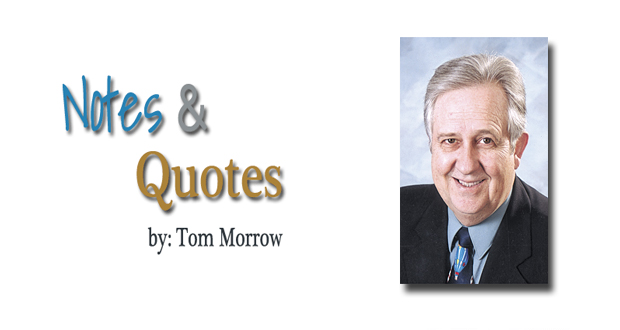Six U.S. Presidents of Controversy
By Tom Morrow
There are six Presidents whom students of history should study to understand what made America the dominant global nation. Today’s young people, for the most part, pay little attention to history and take for granted America’s position in the world. It was no accident how we got here. There was a lot of kicking and screaming, name-calling and even threats of “impeachment.” The nation’s “White House” has been occupied by some rather controversial figures.
While today’s President Donald Trump has an easy “love him or hate him” style, he isn’t that much different than five other controversial presidents. There was Theodore “Teddy” Roosevelt, the turn-of-the 20th century president who found himself in the Oval Office due to the assassination of President William McKinley.
Roosevelt, a Republican, believed in a strong Navy. He had the Navy’s “Great White Fleet” circle the globe to demonstrate our nation’s growing power. “T.R.” believed in his “Big Stick” foreign policy – “Walk softly but carry a big stick.”
T.R. oversaw the historic, but controversial building of the Panama Canal, opening the Atlantic Ocean to the Pacific, cutting travel time in half from the east to west hemispheres.
Roosevelt was placed in the vice presidency by the Republicans to get rid of him. As governor of New York, he had been such a thorn to old-guard politicians they wanted to put him where they thought he couldn’t do any harm. It backfired. Once in the presidency, T.R. created havoc in both government and business with a vast variety of reforms, (sound familiar?) Among other monikers, he became known as the “Trust Buster.”
Franklin D. Roosevelt often has been called America’s greatest president. He served more than 12 years, guiding the nation through the dark years of the 1930s Great Depression into five years of World War II. Dozens of books have been written on FDR, making his presidency the pivotal time of the 20th century. Many of his policies and actions were challenged in the courts and remain a subject of controversy.
Arguably, one of our best chief executives was Harry S. Truman. During the 20th century, he was the only high school graduate to become president. Known among detractors as “His Accidency,” Truman became president in 1945, when Roosevelt died a few weeks into his fourth term.
 As vice president, he wasn’t told about the $2 billion atom bomb project until after assuming the Oval Office. Only five months later, Truman made the decision to drop the two bombs on Japan. It was one of history’s most important, yet controversial decisions.
As vice president, he wasn’t told about the $2 billion atom bomb project until after assuming the Oval Office. Only five months later, Truman made the decision to drop the two bombs on Japan. It was one of history’s most important, yet controversial decisions.
The “Cold War” began with Truman and lasted for more than 40 years until Ronald Reagan caused the Soviet Union to go broke trying to keep up militarily. Reagan was one of the nation’s most charismatic chief executives. Staunchly anti-Communist, Reagan dedicated himself to ending the Cold War.
And, today if you support, defend, or are upset, confused, baffled, and dismayed with President Trump, you might try spending a few hours studying arguably the most controversial of our presidents: Andrew Jackson.
During the War of 1812, Jackson led a force of inexperienced volunteers against overwhelming British forces to win the Battle of New Orleans. He had at least two duels during his tumultuous life, and was the only president to serve in both the Revolutionary War and the War of 1812.
Maj. Gen. Andrew Jackson, (a title he gave himself), was committed to representing and protecting the “Common Man,” a banner carried by several future chief executives. As president between 1829 and 1837. Jackson might have been the closest we’ve had to dictatorship. Some would argue FDR should be on that list.
Today’s president seems beyond bombastic and controversial because of instantaneous world-wide mass media, whereas Jackson might have been more explosive, but there was only word-of-mouth, often delayed newspaper reports to keep the nation informed.
Jackson forever changed American history, squarely setting the executive branch on an equal footing with Congress by having the ability to shape law and government policies.
He believed the presidency should have broad authority. Jackson was widely criticized for expanding the power of the presidency. Like others, he was known for rewarding his supporters with government jobs and the threat of “impeachment” loomed over the Capitol.
During his watch, democracy flourished, but at the same time the economy and the Native American population suffered.
The placement of Jackson on the $20 bill is ironic. He vehemently opposed paper money, making his goal the destruction of the National Bank. In his farewell address to the nation, he cautioned about paper money.
Students of history should enjoy comparing “Andy” Jackson to Donald Trump.
Humorous or human-interest stories or notes for this osidenews.com column can be forwarded via e-mail to me at: quotetaker@msn.com




